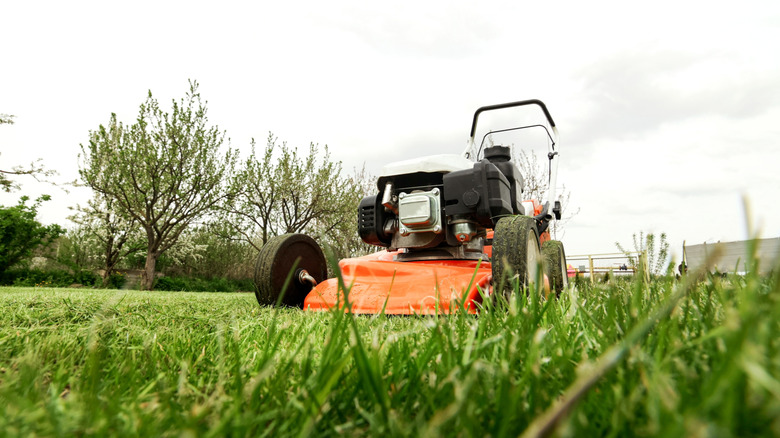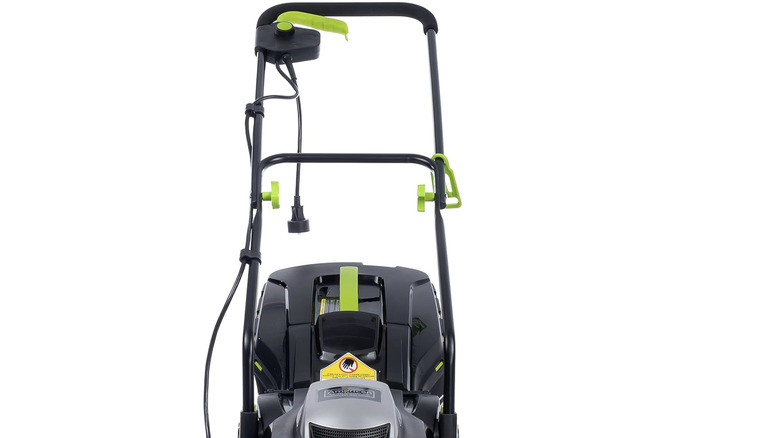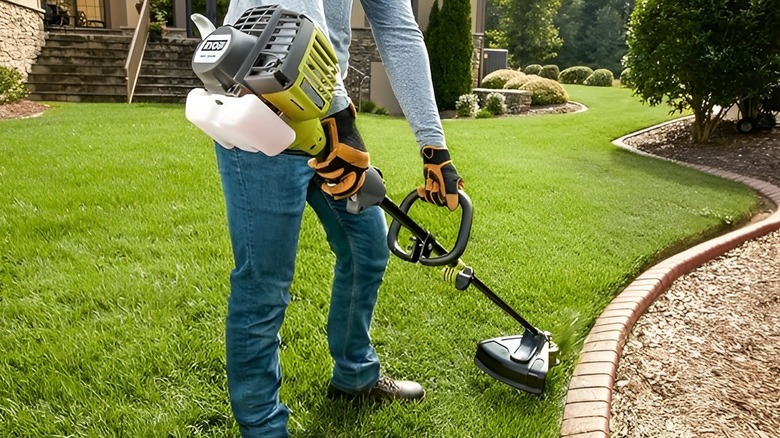Gas Vs Electric Lawn Tools: Is One Really Better Than The Other?
We may receive a commission on purchases made from links.
When it comes to lawn care, there is a healthy variety of available tool choices. From old-fashioned manually-powered trimmers, mowers, and spreaders to the many smart gardening tools now on the market, consumers in this segment have more options than ever before. Many people now go for gas-or battery-powered lawn tools, and it's easy to see why. No matter which specific yard tool you're looking for, you're bound to find it readily available in both formats. These tried-and-true tools are affordable, have available accessories and replacement parts, and provide the power needed to tackle demanding yard work. But whether you're in the market for a new lawn mower, leaf blower, trimmer, or chainsaw, you might be wondering if one power type is truly superior to the other.
As with most debates of this kind, there's no one-fits-all answer to this question. Every buyer's needs and preferences are different, and gas and electric lawn tools each have strengths and shortcomings that must be considered. Whichever you deem best for you depends on the scale of your task, budgetary limitations, how you feel about maintenance, and simple personal preference. Rather than declaring a winner, we're going to weigh out the good, the bad, and the ugly of each option so you can make an informed decision as to which best suits your needs.
Pros and cons of electric lawn tools
For many people, environmental concerns play a big part in purchasing decisions. While some have transitioned to electric vehicles — including e-bikes — others similarly look to electric tools given their clean, quiet operation. This is a major factor for lots of buyers, but is far from the only advantage to electric lawn tools. Operating these tools is usually simpler than with gas-powered models, mainly requiring you to provide a steady supply of battery or AC power and flick a switch or press a button. Electric tools are also usually lighter and smaller than gas tools, making them easier to maneuver and store. And while electric motors do make noise, they are far quieter than most gas engines.
Electric tools also require less in the way of routine maintenance than gas-powered tools, with no need to change out filters, perform seasonal care, or add motor oil. You will, of course, need to either keep batteries charged or work around one or more extension cords. There is also a compromise with electric tools in terms of their power and longevity. While electric lawn tools have grown more robust and efficient thanks to beefier lithium-ion batteries, gas tools are generally capable of handling tougher jobs. However, unless there is especially aggressive growth or a tremendously large area to cover, electric tools are usually enough for most DIYers.
Pros and cons of gas lawn tools
Gas-powered lawnmowers have been around for over a century, and over the years these and other tools with gas engines have evolved to become reliable, economical, and capable choices. For those seeking out a lawn care tool with some kick and staying power, you'll be hard-pressed to find a better option than good old-fashioned gasoline. Instead of a constant worry about battery levels or wrangling live electrical cords around whirring blades, gas tools mostly require topping off the fuel tank periodically during constant use. The power they produce is well-suited to big jobs as well, as gas-powered tools can make short work of overgrown lawns, shrubs, and thickets.
Replacement parts needed for gas-operated tools are usually cheaper and easier to find, but these tools pollute the air and are messier and more difficult to maintain than electric ones. Gas-powered lawn tools like John Deere lawnmowers should be winterized, and gas tools of all types require fuel, oil, filters, and spark plugs on top of universal maintenance needs like sharpening and periodically changing mower blades. Some localities and homeowners' associations (HOAs) have even banned the use of gas-powered lawn tools, particularly ones with loud, polluting two-cycle engines. Keep this in mind along with everything else we've told you when you're deciding between gas and electric lawn tools.


